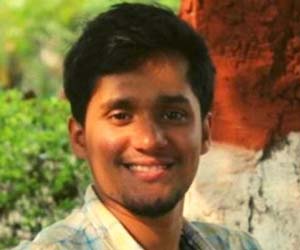On 7th June 2023, Vivekananda International Foundation (VIF) organised a Vimarsh public lecture on ‘Hindutva and Religion’ by Prof. Arvind Sharma. Prof. Sharma, formerly of the Indian Administrative Service (IAS), is the Birks Professor of Comparative Religion in the School of Religious Studies at McGill University in Montreal, Canada. He has also taught at various universities in the United States (Northeastern, Boston, Temple, Harvard), Australia (Queensland, Sydney), and India (Nalanda). He has published extensively in the fields of Indian religions and comparative religion. He is the General Editor of the Encyclopedia of Indian Religions (Dordrecht: Springer, 2017). Prof. Sharma was also instrumental in adopting the Universal Declaration of Human Rights by the World’s Religions, at a global conference held in Montreal, in 2016.
This lecture was the second among the lectures and discussions VIF had organised under the series called ‘Hindutva for our times’. Around a hundred years ago, in 1923, V.D Savarkar wrote a seminal work titled Hindutva: Who is a Hindu? This book gave the classical formulation for the concept of Hindutva. It would be timely to explore the underlying feature of Hindutva ideology. In that direction, the second discussion in the series titled “Hindutva and Secularism,” examined the role played by the concept of Secularism and how Hindutva can reconcile with the same in today’s world.
Dr. Arvind Gupta, Director, VIF, gave the opening remarks for the session. Dr. Vinay Sahasrabuddhe, President of Indian Council for Cultural Relations (ICCR) and Adv. Sai Deepak J, Counsel, Supreme Court of India, also participated in the discussion as panellists.
Prof. Arvind Sharma began the lecture by explaining the history of secularism, and its evolution in the West. In the other half of the lecture, he explored the Indian world of ideas where there could be better concepts that can be more appropriate than secularism. By explaining the word secularism in its own terms, the speaker highlighted that the concept of secularism is nothing but an extension or development of the idea of religion itself. Hence, its direct application to the Indian context becomes difficult. Therefore, he drew attention to the striking fact that there are no equivalent terms for secularism in the Indian context. However, he mentioned that while an Indian term for secularism had to be coined, the word for pluralism already existed for around 3000 years – the word ‘nanadharma’, which appears in the Prithvi Sukta of the Atharvaveda. He added that the proper word which would enshrine the ideal relationship among religions of India is pluralism and not secularism. In terms,It is ‘nanadharmata’ and not ‘dharmanirapekshata’ or ‘sampradayanirapekshata’. In response to Prof. Sharma, Dr. Sahasrabuddhe added that the plurality of Indian traditions is constituted by oneness among them, oneness that is guided by divinity. He mentioned this idea is fundamental to the idea of India’s democracy and Hindutva. On the other hand, Adv. Sai Deepak, questioned the need to fit ourselves in the premises of secularism or pluralisms to be answerable to critics of Hindutva. He highlighted that the challenges we face have their own nuances and the dichotomy between secularism and communalism or religion might not be applicable to India. The discussions were followed by a Q & A session.






Post new comment